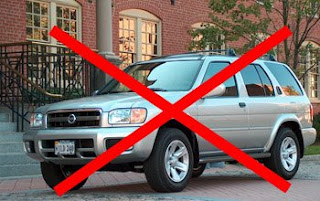In this blog we have had some interesting debates about whether it is necessary to go completely vegan if one is really concerned about issues of animal cruelty. While acknowledging that veganism is the ideal diet for all those concerned about the welfare of animals, the well-being of the planet, and their own physical health, I argued that a vegan diet is far too difficult for most people to follow, and that a more viable option for most people would be to follow a low-fat vegetarian diet such as the one recommended by Dr. Dean Ornish that includes limited amounts of low- or non-fat dairy products (milk, egg whites, yogurt, and cheese), ideally from animals that have been raised humanely. I agree, however, that the goal of anyone even remotely concerned with issues of animal ethics would be to eat as much of their food as possible from plant-based sources and to dramatically reduce their consumption of all animals and animal products.

There are some confused individuals, however, who believe that they are following a vegetarian diet, even though they still eat fish regularly (they are technically referred to as pesco-vegetarians). It’s almost as though these people have convinced themselves that salmon, tuna, and Chilean sea bass are not really animals, and that the rules they follow with regard to the humane treatment of other species don’t really need to be applied to marine life. Let’s get this straight: (1) fish are sentient life-forms like all other animals and they feel as much pain as other animals when they are slaughtered, and, (2) if you are concerned about issues of animal cruelty, you will eat fish as regularly as you would a slab of cow flesh…which means not at all.
When one considers the health risks involved in eating fish loaded with mercury (e.g., tuna, swordfish, shark, etc) and other dangerous containments such as lead, industrial chemicals (e.g., PCBs) and pesticides, it becomes evident that—despite all of the propaganda issued by the USDA and their pimps in the corporate fish lobby—the risks involved in eating seafood very well may outweigh the benefits. And when one realizes that our current fishing practices are driving many of the world’s marine populations to extinction, there is even a greater moral argument for eliminating fish from one’s diet.
I would like to hear how our pesco-vegetarian friends justify the consumption of seafood while clearly having moral qualms about eating land-based animals. I may be a bit naïve, but I don’t really understand how it is any more ethical to chow-down on salmon steak than it would be to consume a hunk of cow, pig, or chicken. Could someone explain the logic of this to me?











